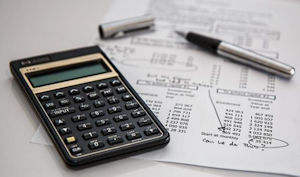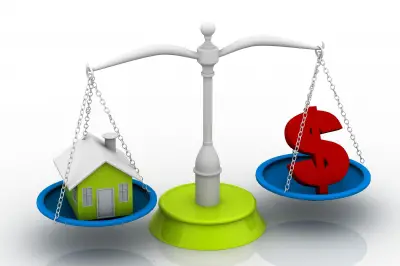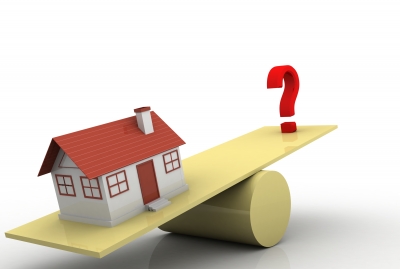 Paying off all your debt always sounds like a good idea, especially in an uncertain economy. In situations when you have accumulated a significant sum of cash, it is understandable that your first thought might be to pay off your mortgage. However, some experts will argue that paying your mortgage early might not be the best idea. Usually, mortgage interest rates are low, and this can be used as a rationale not to rush with paying off your debt. But what about some other aspects of coming out of your mortgage situation? Does it make sense even to consider the option of early repayment? Let us explore the possible downsides of paying your mortgage early.
Paying off all your debt always sounds like a good idea, especially in an uncertain economy. In situations when you have accumulated a significant sum of cash, it is understandable that your first thought might be to pay off your mortgage. However, some experts will argue that paying your mortgage early might not be the best idea. Usually, mortgage interest rates are low, and this can be used as a rationale not to rush with paying off your debt. But what about some other aspects of coming out of your mortgage situation? Does it make sense even to consider the option of early repayment? Let us explore the possible downsides of paying your mortgage early.
Treating your financial situation with prudence is not something you should take lightly. From the moment you move into your new home, you should keep in mind that being a homeowner is a great responsibility. Even before you decided to make this low-risk investment, you had to inspect the property and check the state of it. That way, you made sure you are making the right call settling down in this new home and putting your savings into the purchase. Moving in might have been a memorable experience that you will cherish forever. However, signing the mortgage agreement might have been a bit scary. The thought of having to repay your debt for decades to come might have been or still is a bit overwhelming. So it is reasonable that you would want to eliminate that debt hanging over your head as soon as possible.
But… don’t let this daunting feeling take over your sound judgment. If the opportunity for full mortgage payment comes along, invest some time in investigating the possible drawbacks such a move could make. And consider some alternatives such as diverting your cash towards different kinds of property investments that will provide “passive income”.
Most of Us Become Obsessed with Paying Our Mortgage Loan Early
The feeling of pride in owning your own place for the first time is incomparable. Even if you opt for a 30-year mortgage, you must feel happy about becoming a homeowner. Once you commit and buy your first property, you might be eager to save enough money to pay off your mortgage as soon as possible. You may even be willing to work long hours or take on additional work to improve your cash saving situation.
One of the basic concepts in economics is called “highest and best use” which simply means putting your money to work where it will do the most good for you. Paying off high-interest debt is one use for money but if you can invest it and make enough to pay off the debt and still make even more by investing, then paying off the debt isn’t the “best use”. However, it may still be the “lowest risk use”. The one thing about paying off your mortgage is that it reduces your monthly expenses so that even if you suffered some misfortune you would not be at risk of becoming homeless. Also even though you expect to be able to invest your money at a high enough return to not only pay the interest on your mortgage but also make a profit these higher-risk investments are not guaranteed, so your return may fall short or even lose money, but paying off the mortgage is a “guaranteed return”. Another term to understand is “opportunity cost” which simply means that if you invest all your money in one thing, you can’t use that money for something else.
On the Other Hand
Reasons Not to Pay Off Your Mortgage
1) Not Having an Emergency Fund
One common mistake people make is putting all their excess cash savings into paying off their mortgage loan, and then not having enough to cover an emergency. If an emergency arises and you don’t have the cash you will be forced to take out a loan or use credit card debt which may have a higher interest rate than the mortgage did. Having some cash savings in an emergency fund is crucial before you consider paying off your mortgage.
2) Lack of Liquidity
One disadvantage of putting too much money into paying off your mortgage is that the money is “tied up” houses are “illiquid” meaning that they take time to sell and in the meantime you can’t use the money. One way to access money that is tied up in your house is through either a “home equity loan” or a “home equity line of credit”.
3) Higher Taxes
Another possible downside of paying your mortgage early is higher taxes. When deciding if you want to pay all your mortgage loans, you should think about income tax. As a borrower, you can write off the number of your interest payments from your overall income. That way, you can make your taxable income lower and thus receive a bigger refund. However, since Trump increased the standard deduction in 2017 it is possible that you won’t need the mortgage deduction (i.e. that it won’t help you exceed the standard deduction) but you should be aware of the possibility. But even if the deduction does help you have to decide if it actually outweighs the additional interest you are paying.
4) Is it Diverting Funds from Your Retirement?
If saving for your retirement is one of your goals, you may not want to rush repaying your mortgage loan. Although the growth in the value of your home is currently tax-free, you may be better off putting that money into a tax-deferred retirement contribution like an IRA or 401k. Diverting your cash in your mortgage loan and not towards your retirement fund may not prove to be the best decision. Before making such a decision, try to consider all implications this action might have now and for your plans. This may be a good topic to discuss with your financial planner.
Consider other potential investment opportunities before you make the final call. With every payment towards your mortgage loan, you reduce the risks of your investment. No one can argue that. However, if there is a chance to earn some money by investing in something other than real estate, you should investigate it. If you have accumulated some funds that you want to invest in, a good option would be to look for higher return rates. You don’t have to be a risk-taker to go this path, and you only have to do a basic calculation of your financial gain in both scenarios. Ultimately, you want your finances to be stable, but also think about all the opportunities you might lose if you choose to repay your mortgage early. Research some investments for the future and figure out the best way to make use of your money. Always remember that you have options.
When you look at all the facts and investigate all the aspects of your mortgage loan, you will indeed have what it takes to decide. Weigh in all your options and consult with professionals if you have the opportunity. Do not rush into a decision because everyone has different financial goals and different visions of the future.
You might also like:
- Real-estate investments for first-timers
- Investments You’ll Thank Yourself for in Twenty Years
- 4 Benefits of Working with an Advisor for Your Personal Finances
- Money in Your Twenties: 5 Reasons You Need a Financial Planner
- 4 Benefits of Working with an Advisor for Your Personal Finances
- Ways to Diversify Your Family’s Investments
- Growing Family: How to Set up Your Finances for a New Home
- Avoid These Investing Mistakes


